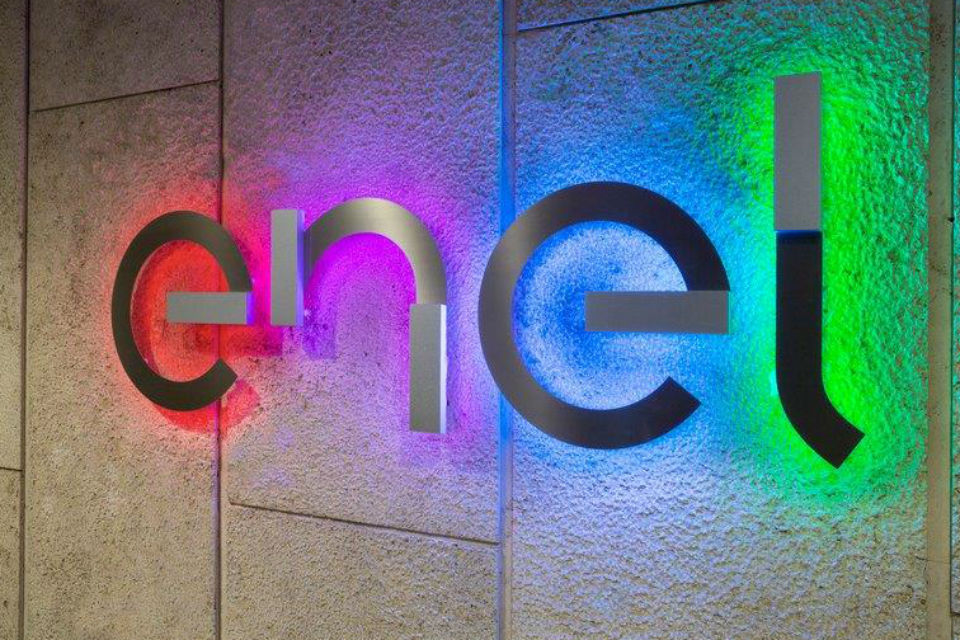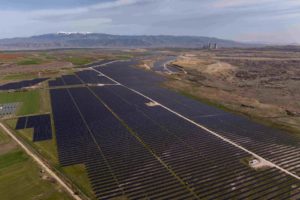Enel Group reports EBITDA of 17.7 billion Euro, up 8.3 percent in 2019

Enel Group announced its EBITDA for 2019 reached 17.7 billion Euro, up 8.3 percent compared to 2018. Revenues increased by 6.3 percent to 80.3 billion Euro.
In 2019, the Enel Group achieved all strategic objectives set for the year, confirming its delivery capacity for industrial growth. In particular, the following progress has been made on the Group’s strategy:
- Generation from renewable capacity again confirmed as the main growth driver with more than 3 GW of new additional capacity built during the year, accompanied by an acceleration in the replacement of conventional generation assets with a reduction of 4.1 GW in coal-fired capacity;
- The increase in generation from renewables was accompanied by solid growth in the retail segment, where the number of customers on the free market reached 17.2 million, 1.2 million more than at the end of 2018. Progress in the distribution sector was underscored by the installation of 5.9 million second-generation smart meters during the year, reaching a total of 13.1 million installed by the Group;
- 2019 saw a 1% reduction in operating expenses in nominal terms, mainly due to efficiency gains recorded in the period, which amounted to about 313 million euros;
- With regards to shareholder remuneration, the total dividend proposed for 2019 is equal to 0.328 euros per share, with an implicit pay-out equal to 70% of the Group’s net ordinary income, 17% more than the dividend paid in 2018, in line with the guidance disclosed to financial markets.
The 2020-2022 Strategic Plan, presented in November 2019, is focused on a sustainable and fully-integrated business model that the Group has adopted since 2015. The model is designed to seize the opportunities resulting from the energy transition and linked to two global trends that are sweeping through the energy industry: decarbonization and electrification. The digitalization of grids and the adoption of platforms for all customer-related activities will be enablers of the Group’s strategy, which aims to accelerate the development of renewables alongside a progressive reduction in thermal generation. More specifically, the 2020-2022 Investment Plan envisages that:
- Investments in decarbonization will amount to about 14.4 billion euros (50% of total capital expenditure) and will be aimed at developing new renewable capacity and gradually replacing conventional generation assets. Decarbonization’s contribution to EBITDA growth will be equal to 1.4 billion euros over the plan period. Renewable capacity is expected to reach 60% of total capacity in three years, driving the increase in the profitability of the generation fleet and increasing zero CO2 emission output up to 68% in 2022. The sharp acceleration in the growth of renewables will support the Group’s pursuit of the goal of achieving total decarbonization of its generation mix by 2050;
- About 1.2 billion euros of investment will be dedicated to the electrification of energy consumption, leveraging on the growth and diversification of the retail customer base and the efficiencies associated with the transfer of activities to platforms. The expected contribution of these investments to the Group’s EBITDA growth amounts to 0.4 billion euros;
- Around 13 billion euros will be invested in the enablers of the energy transition, infrastructure and ecosystems and platforms, to improve the quality and resilience of grids through digitalization as well as creating services and infrastructure in support of decarbonization and electrification. The expected contribution to EBITDA growth is about 1.1 billion euros.
Overall, the Group expects to invest 28.7 billion euros over the course of the plan, with an expected EBITDA of 20.1 billion euros in 2022.
In 2020, the Group will continue to invest in:
- renewables in support of industrial growth to drive decarbonization, especially in Latin America and North America;
- the digitalization of distribution grids, mainly in Italy and Latin America, with the aim of improving the service quality and increasing grid flexibility as well as resilience;
- the electrification of energy consumption, with the aim of leveraging the expansion of the customer base, and to continuous efficiency improvement, supported by the creation of global business platforms.














